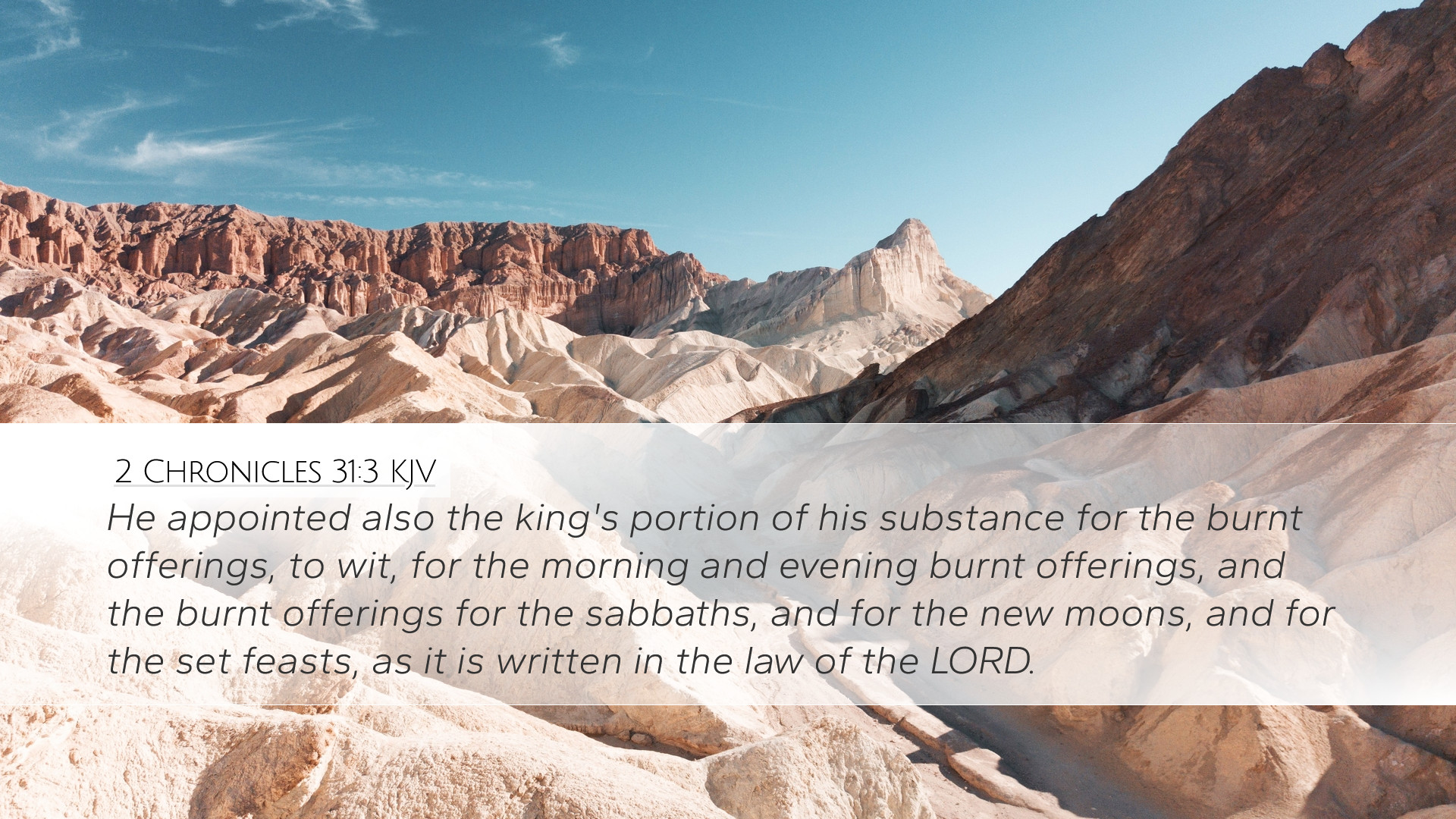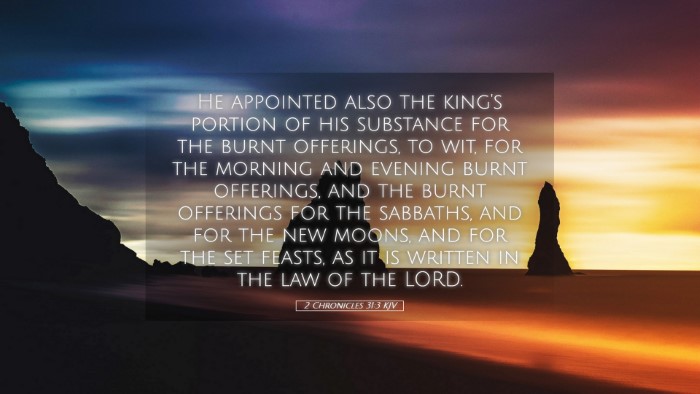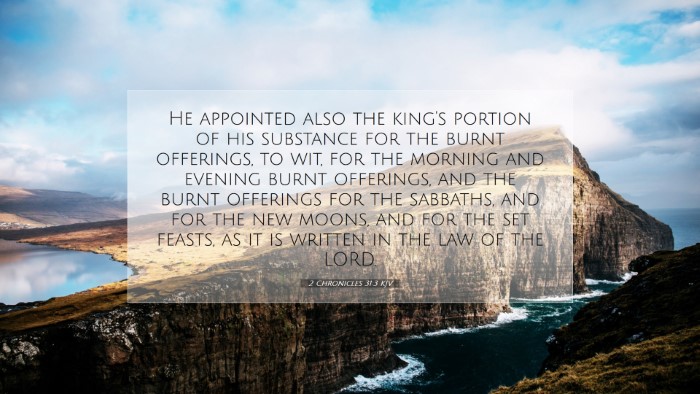Commentary on 2 Chronicles 31:3
Verse: "The king’s portion of his goods was for the burnt offerings, to wit, the burnt offerings of the morning and evening, and the burnt offerings for the sabbaths, and for the new moons, and for the set feasts, as it is written in the law of the LORD."
This verse encapsulates the Heart of King Hezekiah's reformative efforts in Judah. It displays the commitment of the king to restore true worship in the nation and emphasizes the obligation of royal duty towards God's ordinances.
Hezekiah's Leadership and Worship Reforms
Hezekiah ascended to the throne at a time of spiritual decline and idolatry. Encouraged by the Lord to lead reforms, he initiated a series of actions that would realign Judah with the prescribed worship of Yahweh. This verse illustrates his commitment to the systematic observance of sacrificial offerings, an essential component of the Israelites' covenant with God.
Insights from Commentary
-
Matthew Henry: His perspective emphasizes that Hezekiah was not only a king but also a priestly leader who understood the significance of the sacrifices. He derived his authority from God's law, demonstrating that true leadership in Israel was correlated with adherence to divine mandates.
-
Albert Barnes: Barnes notes that the king’s portion was not merely a tax or tribute but reflected the king’s personal commitment to engage in the divine economy. He mentions that Hezekiah recognized the need for continual offerings, symbolizing the believer's ongoing relationship with God through worship.
-
Adam Clarke: Clarke expounds that the context of this verse shows a restoration of order and reverence in worship. He links the systematic offering of sacrifices to God’s larger covenantal narratives. Furthermore, Clarke highlights that observing the law signifies a righteous king’s duty to his people, encouraging collective worship.
Theological Implications
This verse conveys significant theological insights, particularly concerning divine worship and royal responsibility.
-
Royal Responsibility and Divine Law: The king’s allocation of property for the burnt offerings suggests a reciprocal relationship between governance and spirituality. This reflects the belief prevalent in ancient Israel that the king is responsible for not only civil governance but also for ensuring adherence to God’s covenant.
-
Worship as Central to Community Life: The specified offerings for morning, evening, sabbaths, and feasts underscore the importance of worship in Israelite society. It shows that worship was not a mere ritual but a community’s lifeblood and integral to national identity.
-
Restoration and Renewal: Hezekiah’s actions are a vivid reminder of God’s capacity to restore. His reforms suggest there is hope for renewal in faith communities, extending an invitation for believers today to seek restoration through adherence to God's Word and sacrifice.
Applications for Today’s Believers
This verse and its surrounding context offer pertinent applications for modern believers, particularly in how worship is organized and prioritized in church life.
-
Devotion in Leadership: Church leaders and pastors are called to model a life of sacrificial devotion, spearheading efforts in bringing congregations back to authentic worship practices grounded in Scripture.
-
Priesthood of All Believers: While Hezekiah was a king, his dedication to leading worship signals the priesthood of all believers today, emphasizing that worship and service should engage every member of the church, not just clergy.
-
Covenant Reminder: This verse serves as a reminder that corporate worship should reflect an ongoing commitment to God and the covenants He has established with His people through Jesus Christ, just as the ancient Israelites were reminded of their covenant.
Conclusion
In conclusion, 2 Chronicles 31:3 presents a multidimensional view of worship, leadership, and communal accountability under God's law. By delving into the insights of historic biblical commentaries, we can glean essential truths that resonate with contemporary faith practices. The verse affirms the undeniable link between a leader's devotion to God and the well-being of the community they serve. It challenges all believers to heed the call to worship sincerely, ensuring that our offerings—of time, talent, and treasure—dedicate our lives to the service and glory of God.


